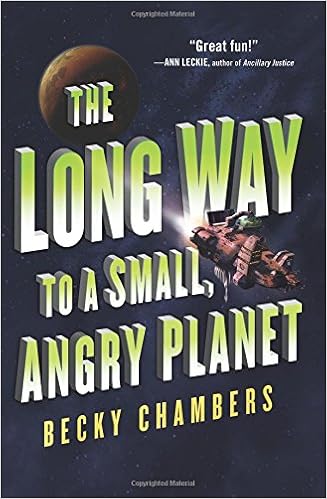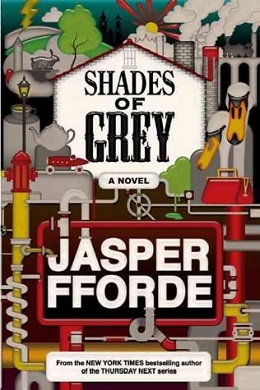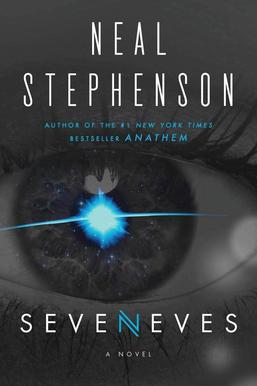Suddenly, the moon blows up, which is never really explained. But that’s okay, because we’re more interested in what happens next. Like the Ewoks watching the Death Star’s destruction, humans of Earth are transfixed by the show in the sky until the grim truth becomes clear: According to the cold equations of physics, our civilization is doomed and the clock is ticking. Those bits and pieces of moon are coming down, and we can't stop them.
The thousand or so pages that follow encompass arguably the largest scope ever for a Stephenson novel, as all the resources of Earth are deployed to ensure that some humans survive the coming apocalypse. And then the book deals with the consequences of that. And then the consequences of those consequences. By the time the story ends, a hell of a lot has happened, is what I’m saying.
Overall, there’s a lot to like here. I’m generally a fan of Stephenson’s prose, and there are indeed some choice bits here. There are also plenty of pages upon pages of engineering geekery: we don’t get five pages of breakfast cereal, but we do get long, lovingly worked out descriptions of orbital mechanics and futuristic technology. That’s fine; many readers enjoy that sort of thing, I know.
I do have to say that there were times I felt my suspension of disbelief was under considerable duress. There were also a couple of rather remarkable narrative coincidences, and I’m still undecided about whether these things bother me enough to damage my liking for the book.
That said, it’s been months since I finished Seveneves and yet I keep thinking about it. It’s rare for a novel to persist in my brain like this.
 The Long Way to a Small Angry Planet
The Long Way to a Small Angry PlanetWe’re in a galaxy with faster-than-light travel and interstellar federations and starships where humans and aliens work side-by-side. Also there are space pirates, dens of scum and villainy, and massive interstellar wars. With all that said, our focus is on the relations among the crew of the small and fairly mundane starship Wayfarer, whose job is to facilitate interstellar travel-by-hyperspace by larger and (I’m sure they think) more interesting vessels.
This is cheerful, optimistic space opera. The interstellar lingua franca that humans and aliens use to talk to each other is rendered as hilariously colloquial contemporary American English. The ship’s techies are so blase about the wondrous indistinguishable-from-magic devices they work with that they’re free to devote considerable attention to the quality of their snack food.
Most of the scenes read like they could play out verbatim in a hypothetical TV adaptation. The feeling that this could be a novelization of a well-written sci-fi TV show is bolstered by the story’s episodic nature, as well as the fact that despite the moments of drama, action and even tragedy, the mood of the narrative keeps returning to that of a workplace comedy (and I mean that nicely).
 Shades of Grey
Shades of GreyDroll British dystopian fiction. Our protagonists live in Chromaticia, a land ordered by color and governed by surrealistically arbitrary but strictly enforced rules. These people are all color-blind to varying degrees, and their social class is determined by the colors they can perceive, from red at the bottom to purple at the top. Main protagonist Eddie Russett is, as his surname implies, at the low end of the ROY G BIV class spectrum, but at least he can see a color -- that is, he’s not one of the Grey proletariat.
The writing style, and the glimpses we get of the everyday lives of these people, is very droll, but Chromaticia -- a future Britain that exists centuries after the unexplained collapse of our own society -- is a frightening totalitarian state, which could use a good overthrow.
All in all, Shades of Grey is a charming little dystopia that takes its time unfolding its true horror. Some reviewers were put off by the slow (if not glacial) pace of the plot development, but I saw that as a positive point. We readers have plenty of time to get accustomed to the rules of this strange society, and come to realize that all the odd bits that don’t initially make sense do, in fact, add up to a coherent yet highly unsettling big picture.
I enjoyed the book immensely, and I look forward to the promised future installments following Eddie’s career in Chromaticia.

No comments:
Post a Comment